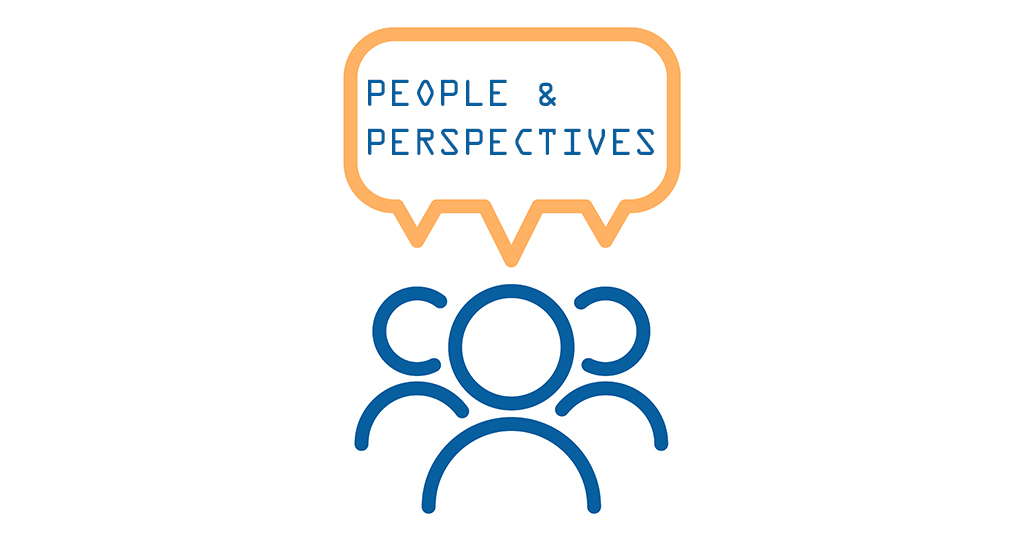People & Perspectives: How do you see the pivotal role HR plays in organizations evolving in the next 20 years?
In every issue of PeopleTalk magazine, we ask CPHR BC & Yukon members from all across B.C. and the Yukon a question and get them to give us a brief answer.
Today’s question: How do you see the pivotal role HR plays in organizations evolving in the next 20 years?
Here are five insights from our student members–the future of the HR profession.
 Isabella Alvarez
Isabella Alvarez
HR Associate
PH Restaurants LP-Aquilini Group
Langley, B.C.
I feel privileged to be part of a profession that is becoming increasingly important every day. COVID-19, and the consequential “Great Resignation,” has illuminated the need to intentionally validate work as more than just what people spend most of their lives doing and provide opportunities for workers beyond base pay and “showing up.” I’ve been fortunate to run several fundraising campaigns at PH Restaurants LP, as well as interact more with front-line workers through engagement contests. I look forward to seeing the creative ways that my colleagues will continue to reinvent the wheel as I believe my generation will be instrumental in putting people first.
 Michelle Amaral
Michelle Amaral
Administrative Assistant and Student Associate
Lii Michif Otipemisiwak Family and Community Services (admin assistant position) and School of Business and Economics TRU (student associate)
Kamloops, B.C.
I believe the HR profession will play a vital role in the next 20 years. We live in a time of continuous change, with a workforce becoming more than ever multicultural and multiethnic. We all learned during the pandemic the importance of re-adapting and innovating in a crisis to survive. I think the virtual interview and remote work will stay, and in the future new systems will be implemented to facilitate the process, and HR practices will become even more efficient.
In my opinion, we will face more shortages of high-skilled workers, and the HR professional will provide organizations with tools to design jobs to optimize work to create a better employee experience. HR professionals will have to practice continuous learning following emerging trends, and they will play an essential role in helping organizations succeed.
 Aadim Rajan
Aadim Rajan
Fourth-year Bachelor of Commerce Candidate
The University of British Columbia (UBC) Sauder School of Business
Vancouver, B.C.
In the next 20 years, I believe we will see HR analytics become a more established area of practice within the field, contributing to the ongoing evolution of HR from a purely administrative function to a more strategic one. Over the last decade, we have witnessed a rise in data-driven decision making across all industries, business sectors and organizations, and HR is no different. However, as of now, HR analytics predominantly focuses on basic reporting and metrics. Moving forward, I think HR analytics will be applied to address complex and overarching challenges, affirming the crucial role that HR plays in contemporary business. If the HR profession can continue to enable employees to be more effective and can simultaneously support more evidenced-based, data-driven decision-making, I believe the profession will be in a unique position to enable organizational and even societal change.
 Daniel Araujo De Castro Santos
Daniel Araujo De Castro Santos
People and Culture Coordinator
Latincouver Cultural & Business Society
Richmond, B.C.
As future human resources professionals, we have the opportunity to lead our organizations into a new era — the era of being the centre for workers’ wellness, mental health and professional support. We will be responsible for our employees’ state of mind and ability to change their skills and competencies into a hybrid work style. We will be the reference for change, as we are already playing that role. The Great Resignation has put us in that position. The new generations and the pandemic are transforming the world we know. HR will be the pillar for knowledge, caring and socialization. Managers of happiness, well-being, people and culture will be vital for the success of any organization. Ultimately, we are people taking care of our people.
 Manal Bourguia
Manal Bourguia
Administrative Assistant
CBI Health Group
Prince George, B.C.
In this rapidly evolving world of business, HR is a strategic partner. It is considered the core function in every business as it supports every other department.
The fast growth of AI in organizations calls upon HR expertise. HR plays a major role in this transformation by regulating the effects of AI on employees, anticipating how it impacts occupations, restructures jobs and ensures employees are employable.
In a constantly changing environment, HR leaders are the advisors you can rely on in your organization. COVID-19 has shown us how important HR is in crisis management. HR professionals demonstrated situational intelligence as they had to invent a new and flexible “world of work” to make sure the business was still going.
In the next 20 years, most baby boomers, if not all, will retire. Organizations will lose their skilled senior leaders and most experienced employees. This is where HR comes in to find, engage and retain new talents. Managing the latter will be a critical challenge and HR practices must adjust to fit the new workforce.
For the latest HR and business articles, check out our main page.
Reader Feedback
We want to hear from you!
Do you have a story idea you’d like to see covered by PeopleTalk?
Or maybe you’ve got a question we could ask our members in our People & Perspectives section?
Or maybe you just want to tell us how much you liked the article.
The door is always open.







